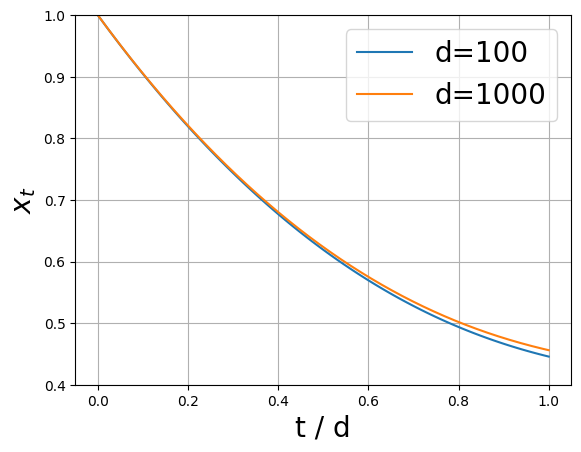Dynamics
I have the following recursive discrete dynamics for $t=1,2,\dots,d$ where we can assume $d>100$ or even $d\to\infty$ if needed.
\begin{align} x_{1} =1,\quad \quad x_{2} = \frac{1+\sqrt{1-4\frac{1}{d}}}{2},\quad \quad \forall t=3,\dots,d:~~ x_{t} =\frac{x_{t-1}+\sqrt{x_{t-1}^{2}-4\beta_{t}}}{2} \end{align} where $ \beta_{t}=\frac{1}{d}\left(\left(t-1\right)2^{-\frac{2t-4}{d}}-\left(t-2\right)2^{-\frac{2t-5}{d}}\right) $.
Overall, $\beta_t$ are rather small (since $d\ge 100$) and strictly positive. Then, at each iteration the decrease $x_{t-1} - x_t$ is also small. The iterates behave as plotted below:
The problem
- Ideally, we would hope to find a closed-form for $x_t$.
- Alternatively, it is also useful for me to prove that $x_{t} - 2x_{t-1}+x_{t-2}>0$, i.e., that $\left(x_{t-1}-x_{t}\right)_{t}$ is monotonically decreasing.
This seems to be the case numerically, but we couldn't prove it. We tried to solve an ODE with a continuous approximation, but that didn't work out.
Any help would be greatly appreciated!

